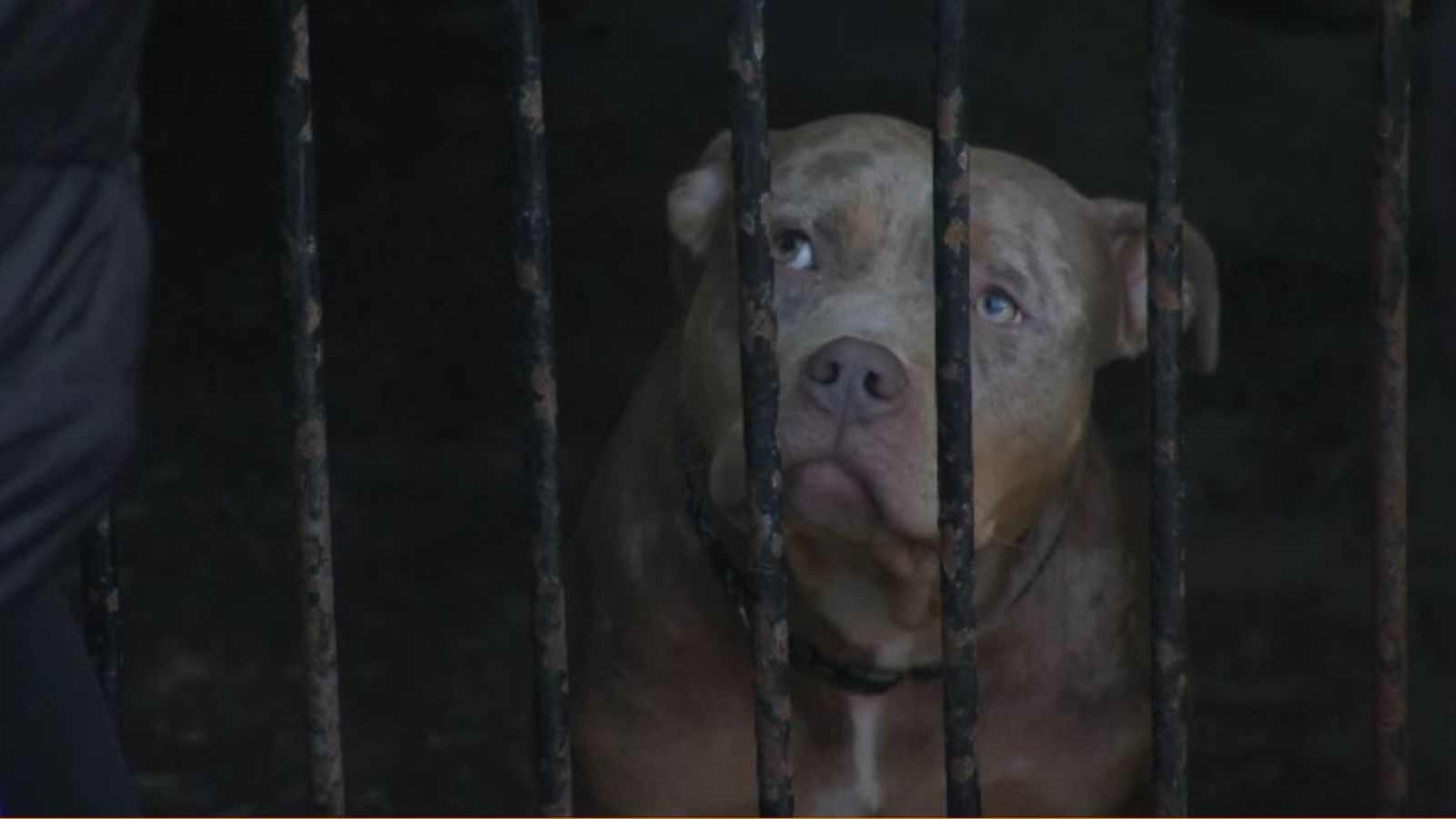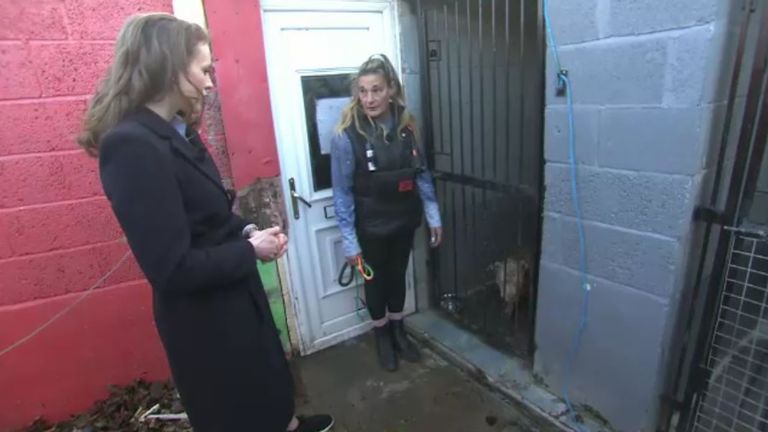At least 246 XL bully dogs will be euthanised when a ban on the breed comes into force at the end of the year, Sky News can reveal.
The dogs currently live in rescue centres run by the RSPCA, Blue Cross, Battersea Dogs and Cats Home, Dogs Trust and Mayhew, among others.
Under the ban, which comes into force in two phases, XL bullies cannot be lawfully rehomed or sold after 31 December.
It follows a spate of recent attacks and deaths involving the breed.
Any XL bully in rescue centres in England and Wales will have to be put down unless they can be rehomed before the end of the year.
Despite rescuers being able to apply for exemptions to keep the breed, the dog would be forced to live its life out in a kennel, which charities say they would never choose for welfare reasons.
Pet owners are required to have their dogs muzzled and on a lead when in public from 1 January, but they have until February to apply for an exemption to own a banned breed.
Many more XL bullies could be put down next year – the Association of Dogs and Cats Homes said the 246 to be exterminated represent less than half of all the controversial breed to have been rescued in the UK.
The total cost to charities to destroy their XL bullies could exceed £90,000, according to Blue Cross.
The organisation said it costs between £350 to £400 to kill a big dog like an XL bully, as their size means cremation costs are increased and more drugs are needed to euthanise them.
As a result, vets “face the prospect of being asked to put to sleep healthy dogs whose behaviour poses no risk”, the RSPCA said.
The government is offering XL bully owners £200 towards the cost of putting their dog to sleep should they choose to, but Blue Cross said the compensation “will not replace the love and affection of a much-loved family pet”.
XL bullies across the country also need to be neutered by February – something which is putting a lot of strain on rescue charities.
Blue Cross has more than 1,000 XL bullies that it will neuter for their owners.
Its spokeswoman Becky Thwaites told Sky News: “If the timeframe for neutering is not extended we will be placed in a position where other preventative work such as vaccinations and routine neutering will have to be stopped.”
Read more:
Police shoot dead XL bully in grounds of primary school
Two people seriously injured in suspected XL bully attack
Why banning the dogs could be problematic
Similarly, the RSPCA said: “There is a huge risk that rescue centres and the veterinary profession will not be able to cope with the demands put on them by this law.”
The requirements of the ban mean pounds that pick up stray XL bullies will also have to euthanise them.
‘Abandoned’
In West Yorkshire, an XL bully named Daisy was abandoned three weeks ago. Found starving, she was picked up by a pound, nearly 10kg underweight.
The pound, which Sky News is choosing not to name, has seen an increase in XL bullies being abandoned.
Like rescue centres, once the ban comes in at the end of the year, Daisy cannot leave the pound to be rehomed. She will be put to sleep, along with two other recently abandoned XL bullies.
The RSPCA said there were “already, anecdotal reports of dogs being surrendered or abandoned across the rescue sector”.
In an attempt to overturn the ban, campaign group Don’t Ban Me, Licence Me has launched legal action against the government.
If the government maintains that its decision to ban the XL bully was reasonable and lawful, or it doesn’t respond at all, the campaigners will launch a judicial review.
If they cannot get a quick judicial review, they will apply for an injunction to delay the ban coming in, they said.
The Department for Environment Food and Rural Affairs said the ban was brought in to “protect the public from tragic dog attacks”.
A spokesperson added: “Alongside this, we are focused on ensuring that the full range of existing powers to tackle dog control issues are effectively applied across all breeds of dog.”





